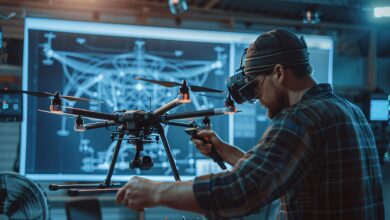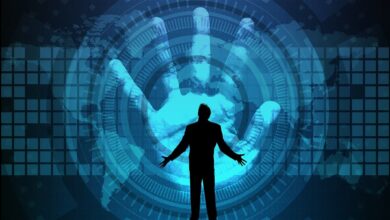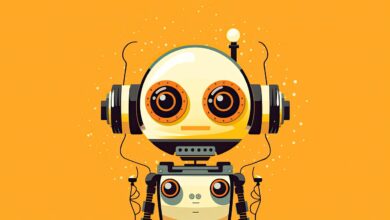Jobs that AI won’t be able to replace anytime soon

Around ten years ago researchers Carl Frey and Michael Osborne, from Oxford conducted a study predicting that by 2030 around 47 percent of jobs would disappear. With the advancements in Artificial Intelligence, there have been discussions and speculations about how it will impact the future of work and whether human workers will be displaced by automation or augmentation.
However certain professions possess nuanced characteristics where human interactions make them highly unlikely to be completely replaced by AI anytime soon. While AI can undoubtedly enhance professional capability, there are roles that require unique human skills or are resistant to automation. Let’s delve into some of these roles that AI is not expected to replace in the future.
1. AI and Machine Learning Specialists
Ironically one field immune to being replaced by AI is none other than AI and machine learning itself. As technology continues to evolve, there will always be a need for experts who can innovate, develop and fine tune AI algorithms. These specialists play a role as architects of the technology that has the potential to replace other jobs – a demand, for their expertise that will remain consistently high.
2. Creative Professions
Jobs in fields such as artists, writers, musicians and designers pose a challenge for AI to replicate. These professions rely on imagination, emotional expression and originality and on the other side, the consumers & audience within these domains actively seek out the value the distinct element of creativity. While AI can support and enhance creativity by generating ideas or designs, the essence of creativity remains a human trait.
3. Healthcare
Healthcare positions like doctors, surgeons, and nurses involve procedures that require dexterity, intuition and adaptability. AI can certainly assist with diagnostics and data analysis in these roles, but the compassionate and empathetic care provided by humans is invaluable. Physicians, nurses therapists and other healthcare professionals also rely on empathy, emotions and a deep understanding of human conditions, qualities that AI lacks. The augmentation of AI into diagnostic tools has undoubtedly advanced their ability to detect diseases promptly using biomarkers, however clinicians are the ones who’ll continue to use those AI-assisted tools to improve patient outcomes.
4. Research & Innovation
Research labs focused on high level problem solving and experimentation are less likely to be replaced by AI in situations where clear and tangible parameters are lacking. These positions, commonly found in fields such as research, engineering and innovation demand skills like imagination, creativity and adaptability that AI systems lack.
5. Teaching and Education
Teaching involves an interplay of understanding students’ needs; empathy, compassion, adapting to learning styles and establishing connections with them. Educators provide guidance while catering to learning preferences and inspiring students. The ability to adapt teaching methods according to learning styles, and fostering students growth are specialized traits that AI cannot replicate.
The above chart from Economist shows the sectors that are at potential risk of Automation
6. Leadership and Strategic Planning
Leadership entails decision-making processes, strategic planning abilities and an understanding of behavior. Inspiring others, motivating teams and offering guidance require intelligence and profound comprehension of the mind. While AI can assist in data analysis and offer insights in this domain as part of “augmented AI”, the final decisions will be made by human leaders.
7. Human Resources
Professionals in HR oversee employee well-being, handling conflict resolution and many other scenarios within an organizations dynamics. These specific positions necessitate thought process, empathy & judgement, a comprehension of behavior and a personal touch that AI lacks the capability.
8. Social Workers
The role of caregiving demands empathy, emotional understanding and nuanced decision making qualities, that is deeply rooted in humans. Social workers and professionals in the human services field work with individuals who face sensitive challenges. These professionals must possess the ability to comprehend dynamics, empathize with individuals experiences and navigate intricate human relationships. AI falls short in replicating these multifaceted aspects of community engagement, due to its inability to understand and empathize with emotions and experiences. As a result these roles remain resistant to automation.
9. Skilled Trades and Craftsmanship
Skilled trades such as carpentry, plumbing and welding require a combination of dexterity problem solving skills and hands on experience. These professions often entail adapting to situations – an area where AI struggles without intervention. Furthermore, craftsmanship involving attention to detail in creating products is an artistry, unique to humans.
The above chart from WEF shows the Increasing & Decreasing demand of professions
Conclusion
While AI continues to advance, augment and automate various aspects of our lives, the future of work may see a shift toward roles that emphasize emotional intelligence, creativity, complex problem-solving, and specialized expertise. There’ll be certain jobs that require creativity, emotional intelligence, ethical discernment, and a deep understanding of human behavior will remain firmly rooted in human capabilities for the foreseeable future. The essence of being human – empathy, creativity, emotional intelligence, and complex decision-making will ensure that AI cannot replace these roles entirely. As the AI technology evolves, it’s essential to find the right balance between leveraging the strengths of both to drive progress and innovation in a rapidly evolving world.




